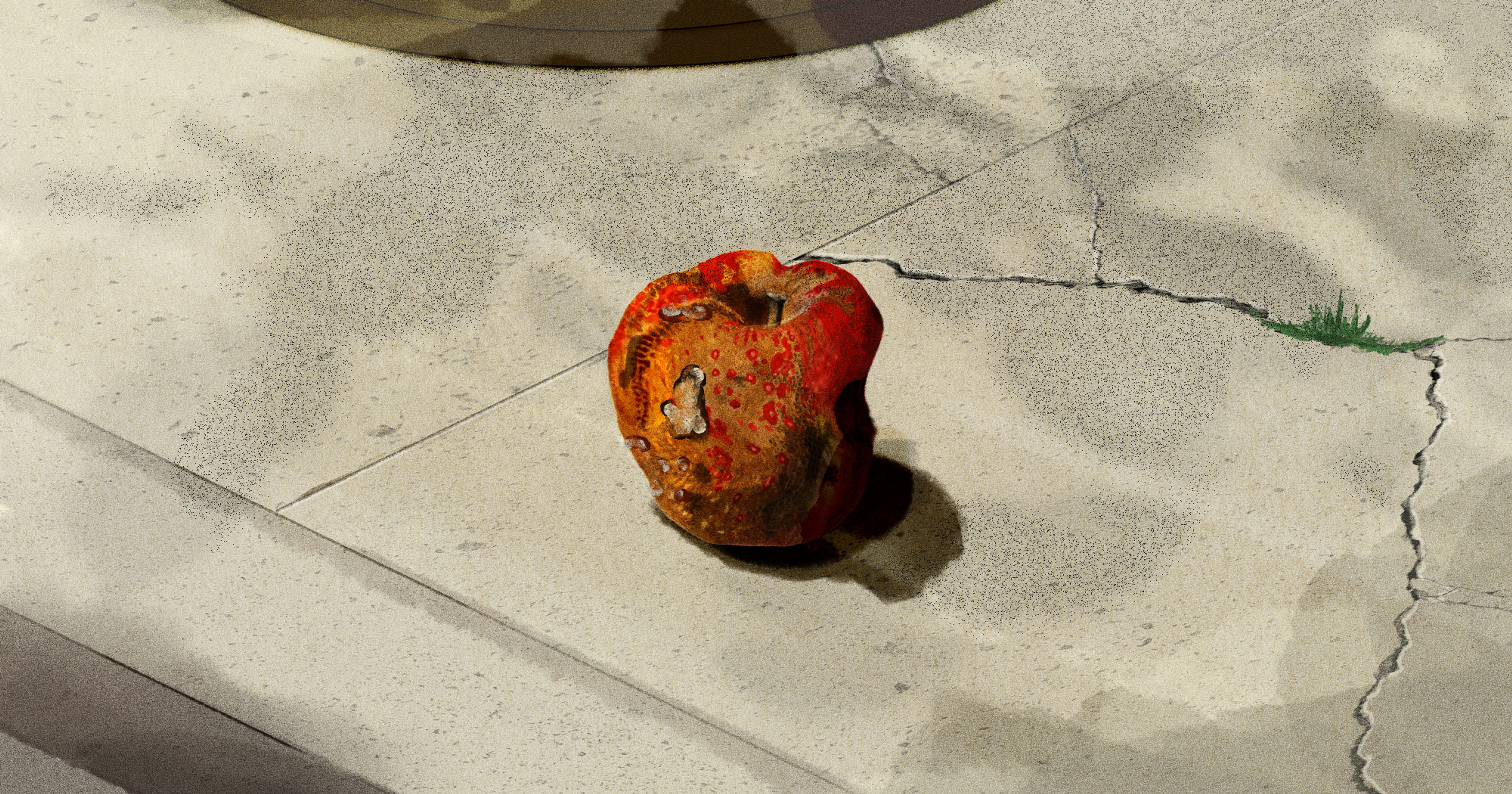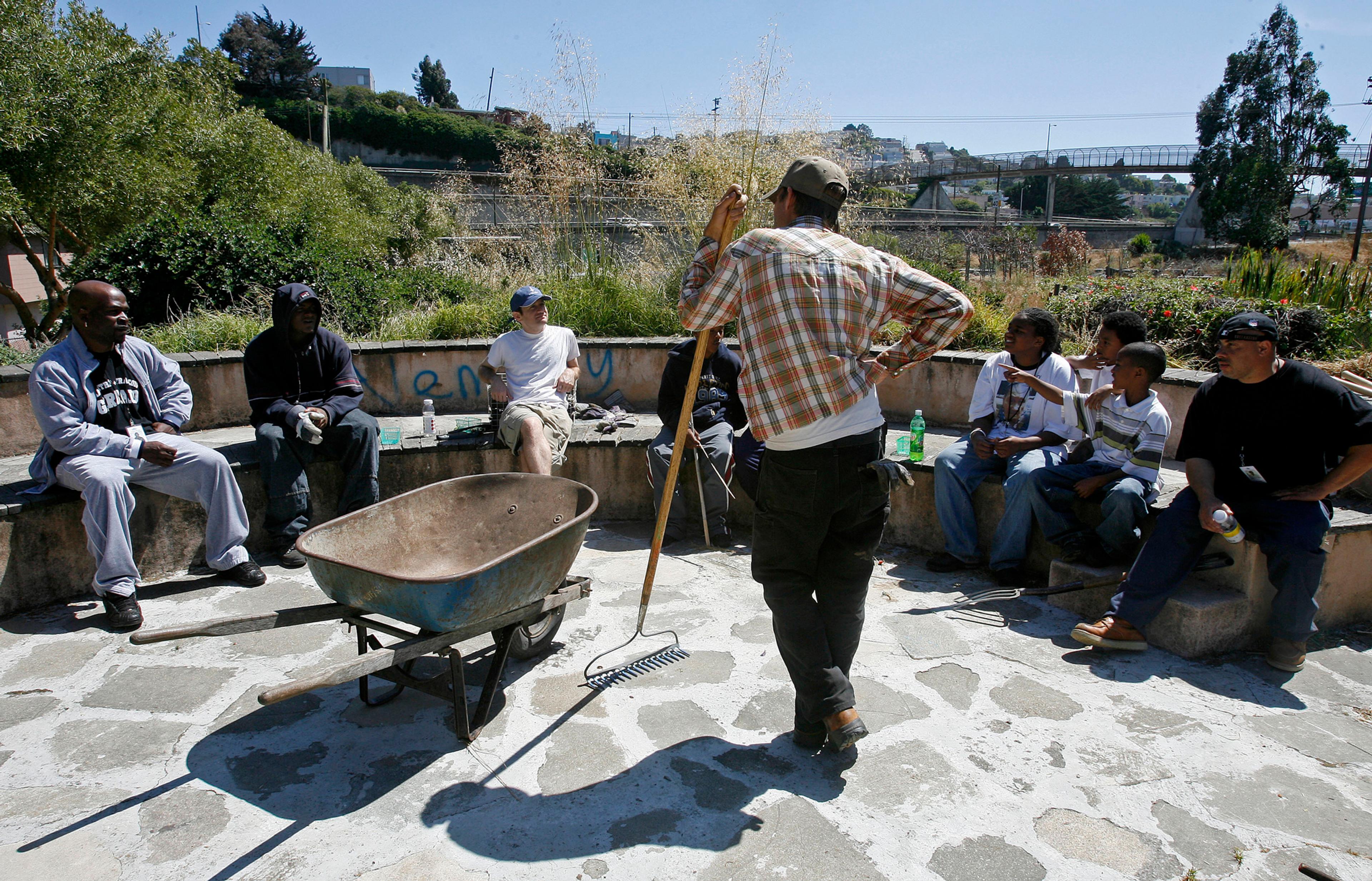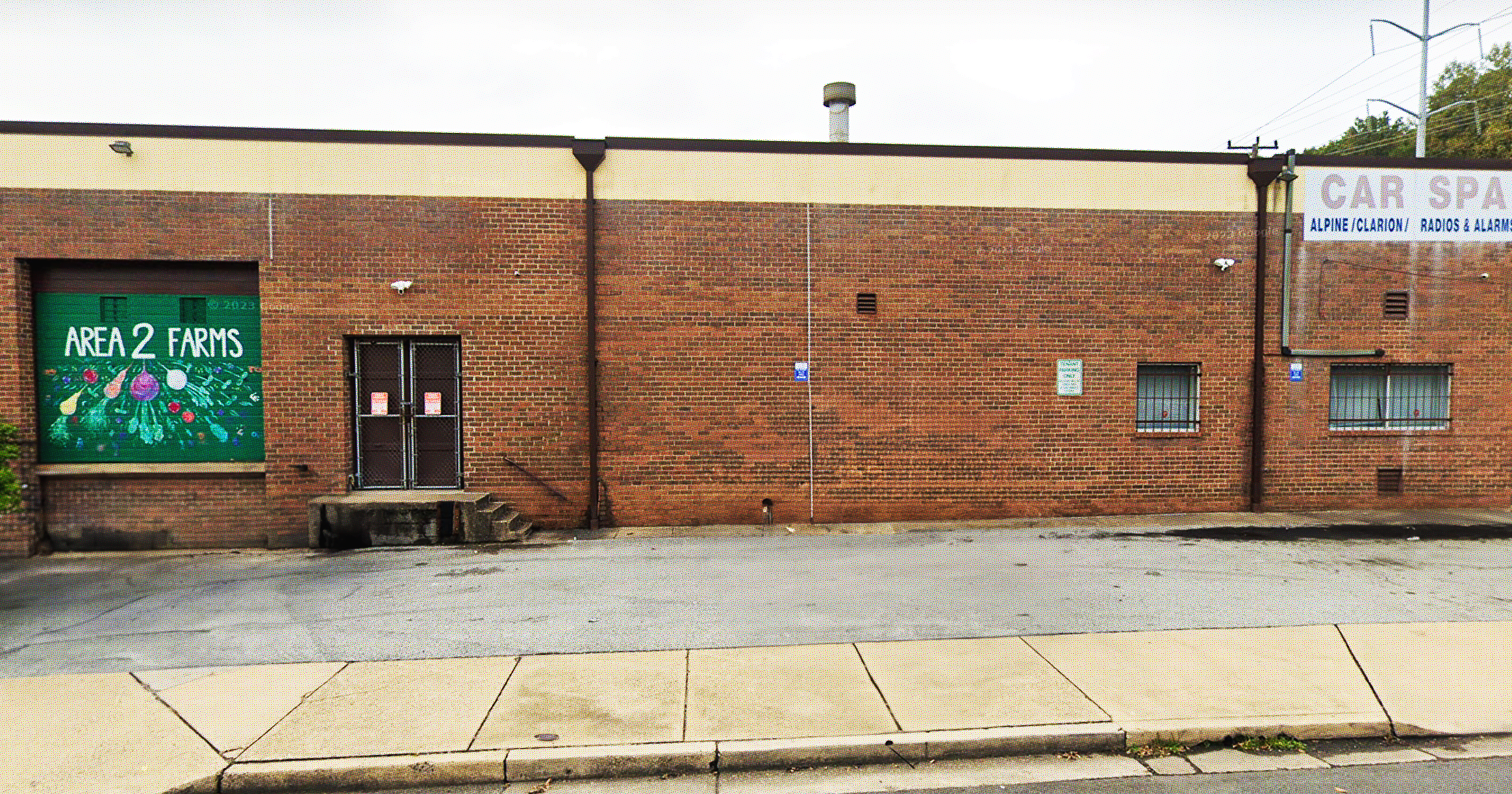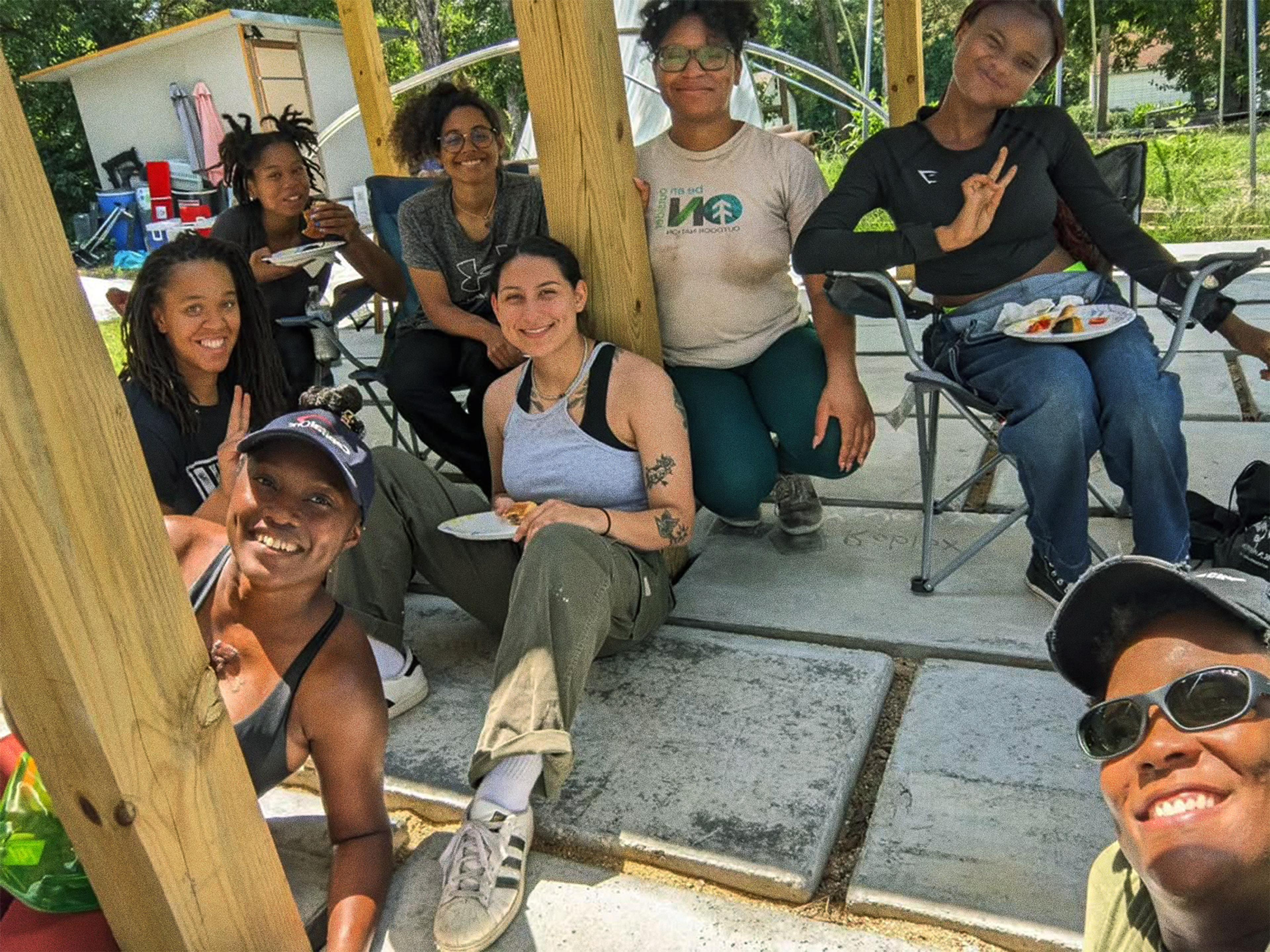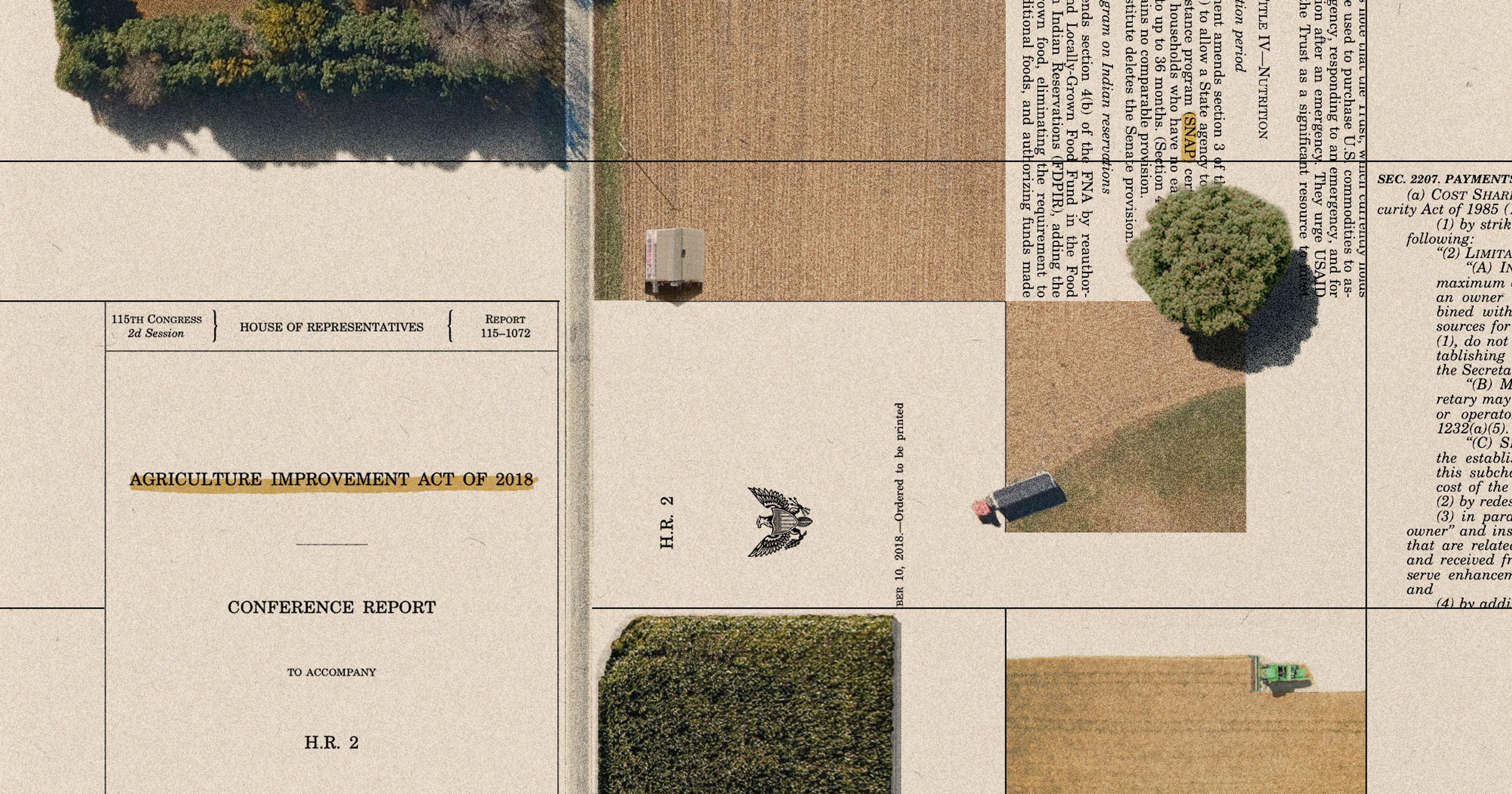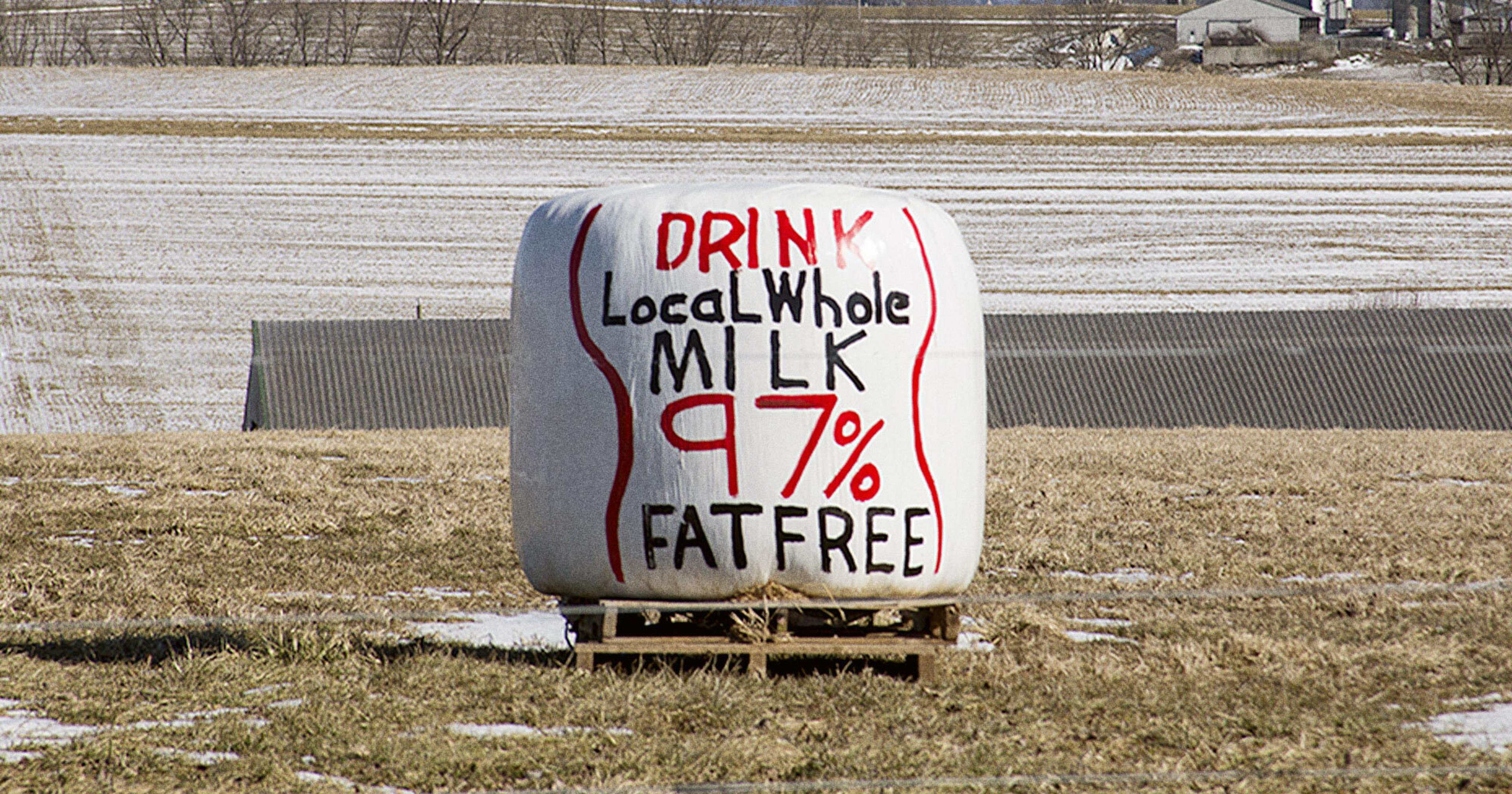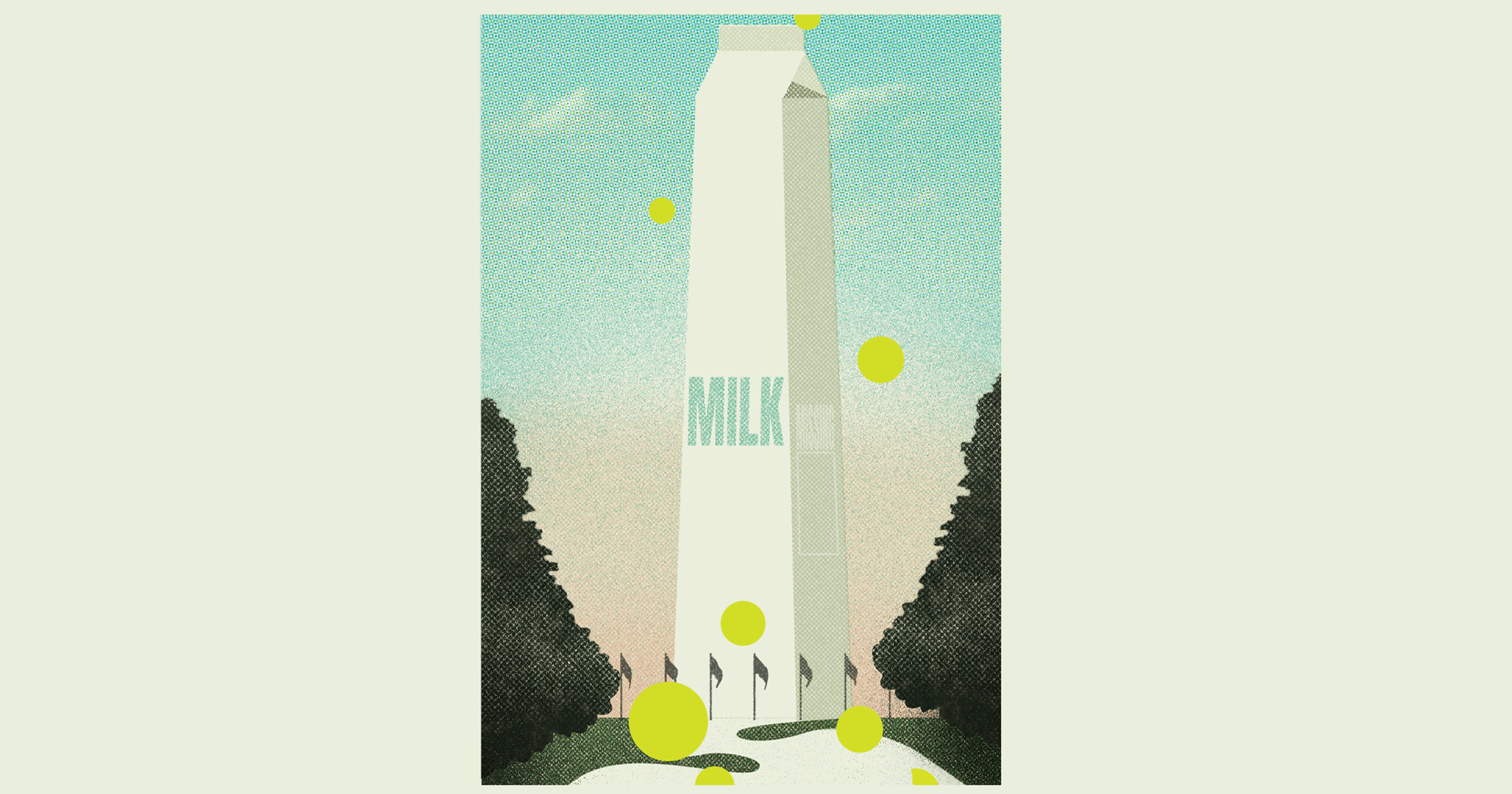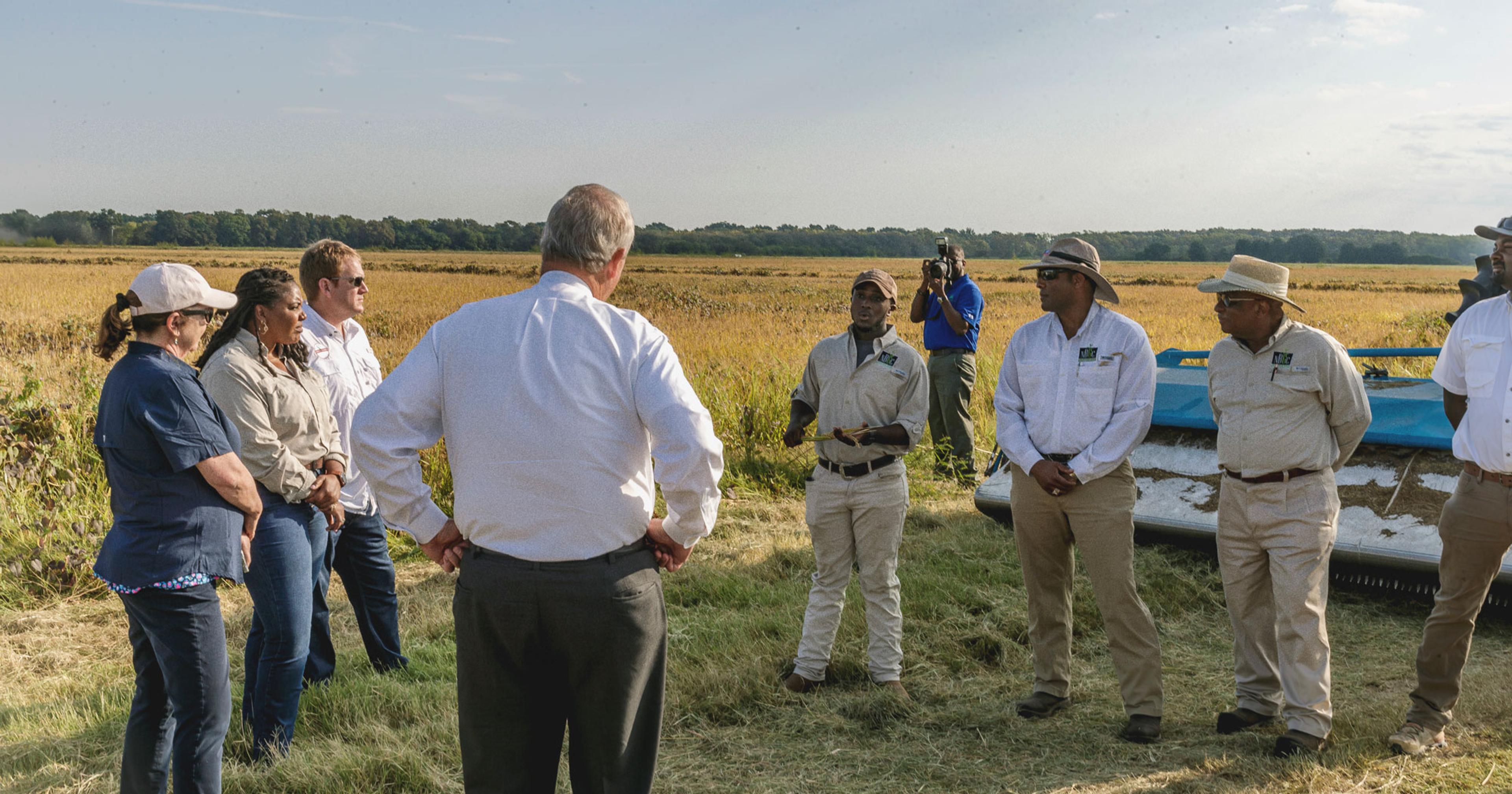A post-pandemic surge in federal support gave urban agriculture a moment in the sun. Under the revamped USDA, the outlook is clouded.
For 15 years, the Ivanhoe Farmers Market has been bringing fresh produce to a neighborhood in Kansas City’s East Side, where full-service grocery stores are few and far between. Its 20-plus vendors — farms, bakeries, apothecaries, and artisans — offer healthy food and specialty products. And the market itself serves as a platform from which small-scale gardeners and purveyors like Alana Young-Henry can grow. Her Young Family Farm started as a backyard garden and has expanded to two acres since joining the market, bringing community members collard, mustard, and turnip greens. Despite its popularity, the market has only been able to operate once a month from June to September. Young-Henry says the issue is quite simple: lack of funding.
But last fall, a three-year, $165,000 grant from the United States Department of Agriculture (USDA), was set to change that. With funding from the Farmers Market Promotion Program, Ivanhoe aimed to support new growers, extend its season, and add a second day each month focused on low-income young mothers and seniors using food subsidies. For Ivanhoe, and scores of similar markets approved for funding, the program was set to be a game-changer.
That plan changed on February 14, when Young-Henry, who oversees the market as executive director of Ivanhoe Neighborhood Council, received a letter from the USDA saying the grant had been terminated because it “no longer effectuates agency priorities regarding diversity, equity, and inclusion.”
For Young-Henry, the grant cancellation rescinded what had been an important recognition of the role urban agriculture plays in sustaining her community — and the financial support to expand that role. “It means less healthy food in people’s bellies,” she said. “It means less opportunities for small backyard gardeners to establish a farm business.”
As the Trump administration’s attempt to reshape the federal budget has shaken up the USDA and the farmers who rely on its support, the sudden shift in priorities has muddied the path forward for producers in urban environments. Brian Guse, director of the Office of Urban Agriculture and Innovative Production, an arm of the USDA that has invested over $85 million in building the capacity of urban farms since it opened in 2020, retired in April “with mixed emotions.” The office pulled its latest round of grant applications this spring, and its funding for the next fiscal year remains in limbo. So, too, does the future of the urban service centers established in 2023 to connect uarban farmers with resources that have long benefited their rural counterparts.
Just as urban agriculture was beginning to attract the attention of the federal government, farmers and advocates describe having the rug pulled out from under them.
“Everybody is a little shell-shocked,” said John Bixler, executive director of Pittsburgh’s Hilltop Urban Farm, which lost about $43,000 in Climate-Smart Commodities funding it planned to use for deer fencing to protect the land where it runs a farmer incubator program.
“It means less opportunities for small backyard gardeners to establish a farm business.”
Although the Office of Urban Agriculture was authorized in the 2018 Farm Bill, much of the support offered to urban farmers has come since the 2020 pandemic disrupted supply chains and revealed cracks in the food system. Amid the crisis, the rate of food insecurity rose from 11 to 15 percent and the population seeking food assistance increased by half. In those circumstances, local producers were in high demand. At farmer’s markets, vendors offering fruit, vegetables, meat, and dairy largely saw increased sales. And at many markets, the use of SNAP benefits grew. By delivering for their communities in a moment of great need, urban farmers say they galvanized support — and, in time, garnered the backing of the federal government.
“We helped sustain our city,” said Ebony Lunsford-Evans, who operates a diversified vegetable farm and fresh-food corner store in Pittsburgh. She had a $7,000 climate-smart grant canceled that would have allowed her to install a water line for her farm. “We were a big part of our neighborhood’s eating. We were all in dire need then, and we truly stepped up. That really gave a lot of us hope and momentum.”
That momentum contributed to the Biden administration opening 17 urban service centers and 10 urban county committees, joining a roster of more than 2,300 USDA service centers nationwide. They were designed to put urban farmers in touch with the Farm Service Agency and National Resources Conservation Service (NRCS), which offer funding and technical assistance to growers establishing and expanding their operations.
“If you grow up on a farm in the country, you’re always hearing about the local NRCS office. That’s part of your life,” Bixler said. “It’s totally foreign to urban growers, and this was a first step in switching that up and making them aware of what resources might be available.”
But a pall of uncertainty and a string of cancellations, both to individual grants and programs just beginning to make a difference for urban farmers, have left many feeling spurned. “It was heartbreaking,” Lunsford-Evans said.
As farmers deal with the ramifications of lost funding, urban agriculture advocates worry that the disinvestment will have long-term consequences. Some, including Pasa Sustainable Agriculture executive director Hannah Smith-Brubaker and Hannah Quigley, policy specialist at the National Sustainable Agriculture Coalition, expect the government to pull its leases on the urban service centers. Some of the directors of those minimally staffed local offices have participated in the deferred resignation program, leaving their future murky. Meanwhile, the USDA removed from its website a call for its next round of urban agriculture grants, which help train new farmers and expand production capacity for gardens and farms that often support low-income and food-insecure communities.
“Finally, finally, finally, the USDA was paying attention to and providing resources to farmers who historically have not been served very well, if at all.”
Urban farmers have also been hampered by cuts to local food purchasing programs that helped farms sell to schools and food banks and had an outsize impact on small-scale growers who benefited from their sizable contracts. And cuts to food assistance threaten to impact urban farmers, whose community members often rely on SNAP to purchase from them.
“USDA has a solemn responsibility to be good stewards of the American people’s hard-earned taxpayer dollars and to ensure that every dollar spent goes to serve the people, not the bureaucracy,” an agency spokesperson told Offrange. “As part of this effort, Secretary [Brooke] Rollins is carefully reviewing funding, including for programs that support urban agriculture.”
For Smith-Brubaker, whose Pennsylvania-based organization helped 45 farmers in Pittsburgh and Philadelphia apply for about $100,000 in now-canceled climate-smart grants, the federal investment in urban agriculture was a recognition that the food system must include cities.
“Finally, finally, finally, the USDA was paying attention to and providing resources to farmers who historically have not been served very well, if at all,” she said. “We had such momentum going and it’s all gone now.”
The rejection of diversity, equity, and inclusion principles further complicates the present and future funding environment for urban agriculture. In many cases, grant applications that were required to consider those principles under the last administration are now being targeted for doing so. Take, for example, Rollins announcing the cancellation of a grant for an Oakland, California, nonprofit focused on establishing new farmers because it aimed “to educate queer, trans, and BIPOC urban farmers and consumers about food justice.”
“We aren’t going to be able to put our faith in the idea that the federal government is going to come save us, because that hasn’t really been true for most of us.”
“How stripped will your narrative have to be in order to be considered [moving forward]?” said Qiana Mickie, executive director of the New York City Mayor’s Office of Urban Agriculture and a member of the advisory committee for the USDA’s urban agriculture office. The impact of the shift in priorities, she said, will be disproportionately felt by urban farmers.
As the future of the USDA comes into focus, farmers and advocates say their resilience has been tested before and will serve them in this moment. For many urban farmers, even establishing land for growing can require removing thousands of pounds of rubble from a site, remediating soil, and facing an uphill battle to install basic necessities like water lines and fencing, often on shoestring budgets. The recent federal investment promised to lighten the load, but the restructuring of the USDA won’t stop progress, they say.
“Urban farmers have really been doing it without USDA’s help for decades,” Quigley said. “They won’t cease to exist. They’ll be more creative.”
Young-Henry, who is coming to terms with the lack of funding to expand the farmer’s market in Ivanhoe, said the experience has led her to redouble her commitment, she said, and she’s seen the same from other urban farmers who are putting their heads down and focusing on the mission of their work.
“That’s what will continue to give us hope,” Young-Henry said. “We aren’t going to be able to put our faith in the idea that the federal government is going to come save us, because that hasn’t really been true for most of us. And it doesn’t seem like it’s going to change anytime soon.”

